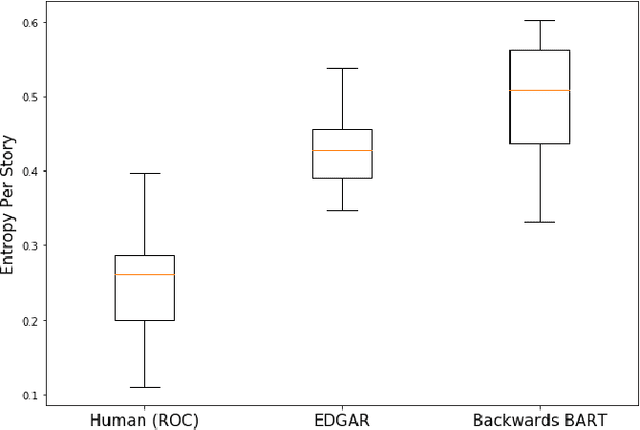Automated Story Generation as Question-Answering
Paper and Code
Dec 07, 2021


Neural language model-based approaches to automated story generation suffer from two important limitations. First, language model-based story generators generally do not work toward a given goal or ending. Second, they often lose coherence as the story gets longer. We propose a novel approach to automated story generation that treats the problem as one of generative question-answering. Our proposed story generation system starts with sentences encapsulating the final event of the story. The system then iteratively (1) analyzes the text describing the most recent event, (2) generates a question about "why" a character is doing the thing they are doing in the event, and then (3) attempts to generate another, preceding event that answers this question.
 Add to Chrome
Add to Chrome Add to Firefox
Add to Firefox Add to Edge
Add to Edge